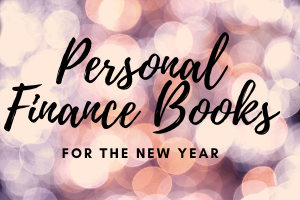
How the books were picked
Books on this list were picked for having good advice, delivering the advice well, entertainment value, perspective variety, fewer than 400 pages, and overall readability. Personal finance books should provide good advice, new perspectives, and also be good books that pull in and engage with the reader. The books below are in no particular order. See this blog's companion IGTV post at instagram.com/p/CJzAfXSHVvF/.
Top 10 books for your 2021 personal finance new year’s resolution
The Financial Diet by Chelsea Fagan
Fagan uses storytelling techniques to talk about her own money and life journey from her teenage years into adulthood while using graphics to make the advice parts of the book jump out at the reader in an engaging way while breaking up pages of text. This book goes beyond finance to help the reader handle life, including get-started advice for career, groceries, and home ownership. For readers of Girl Boss.
I Will Teach You to be Rich by Ramit Sethi, 2nd edition
Sethi will not tell you to buy fewer lattes. Instead, he will encourage you and teach you to invest your money and show you how investing will help you grow your money over time. Sethi spends a lot of time in the book dispelling excuses and encouraging readers to take responsibility for their behavior and situation by making room in monthly expenses to invest at a younger age.
You are a Badass at Making Money by Jen Sincero
Sincero discusses her money mistakes and discusses making attitude shifts that will allow readers to go out and make more money. She talks about faith and gratitude, intentions, and drive, focuses on increasing salary or sales, and not investing.
Happy Go Money by Melissa Leong
Leong tackles the topic of money and happiness and how the two are intertwined while yielding financial and life advice through relatable and personal stories of her own. Topics include net worth, saving money, asking for a raise, and what that magic “optimal” salary number in regard to happiness is.
Man vs Money by Stewart Crowley
Crowley’s approach to financial advice is through a basic understanding of statistics and economics. After a brief introduction to some of the great economic thinkers, Crowley moves onto what you need to know about how compound interest works, interest rates, bonds and yields, the banking system, the markets, virtual currencies, and commodities. This book covers everything one needs to know in order to invest and grow their money over a lifetime. For readers without any prior knowledge of these topics, perhaps start with Napkin Finance prior to reading Man vs. Money.
This is the book to start with if you know nothing. All the financial definitions you need to know are spelled out here in this handy little book with chapter quizzes at the end to help yourself learn everything you need to know written in a text-book sort of style with great graphics. This book is especially good for people who want to drill down into learning about finance without also learning the author’s life story.
Refinery 29 Money Diaries by Lindsey Stanberry
Stanberry has added advice and how-to guidance to the Refinery 29 Money Diaries in this book. A money diary is where a person writes a diary for a week of everything they spent money on and why for a week, in addition to providing additional context, like cost of living, subscriptions ongoing, salary, savings, and debt. Each of the money diaries in the book include a follow up questionnaire that the person who wrote the diary answers. Chapters are centered around these money diaries and the diaries are used as anchors for the topic covered.
The Next Millionaire Next Door by Thomas J Stanley and Sarah Stanley Fallaw
In this follow up to the Millionaire Next Door, Stanley and Fallow dispel myths about millionaires and billionaires. They then focus on millionaires and the percentage of self-made millionaires, and how they became millionaires. They then analyze these millionaire’s backgrounds, education levels, sources of income and spending habits.
This title doesn’t try to go out on a limb to entertain you and it’s a little bit of an older title for this list. Suze Orman had a TV show on CNBC up until 2015 where people called in and asked her for advice. Her books are classic personal finance must-reads for anyone trying to straighten out the meaning of the word “affordable” or get their financial life together. This book is about doing the work. While some figures could be out of date, this book is just as relevant today as it was when it was published a decade ago.